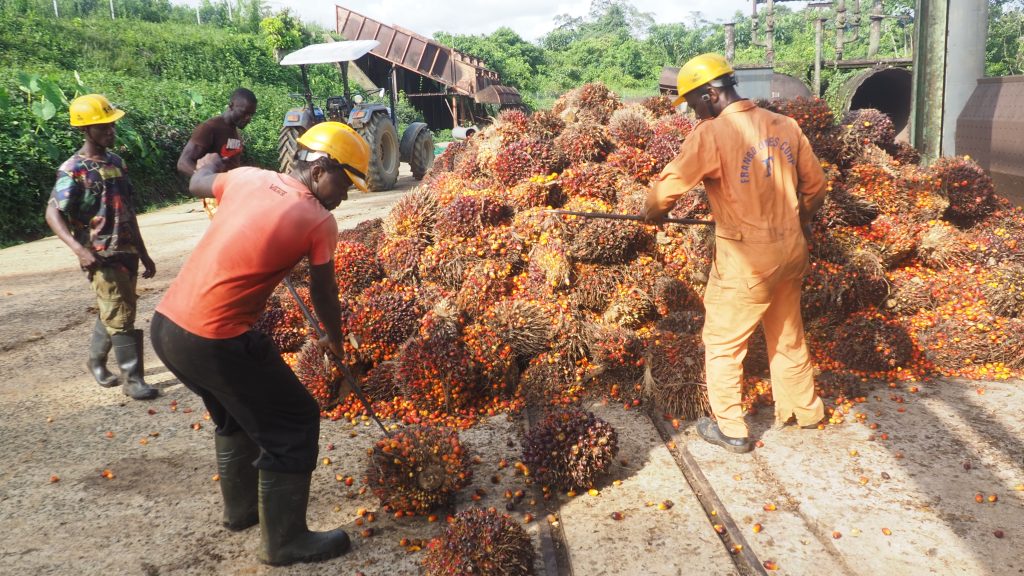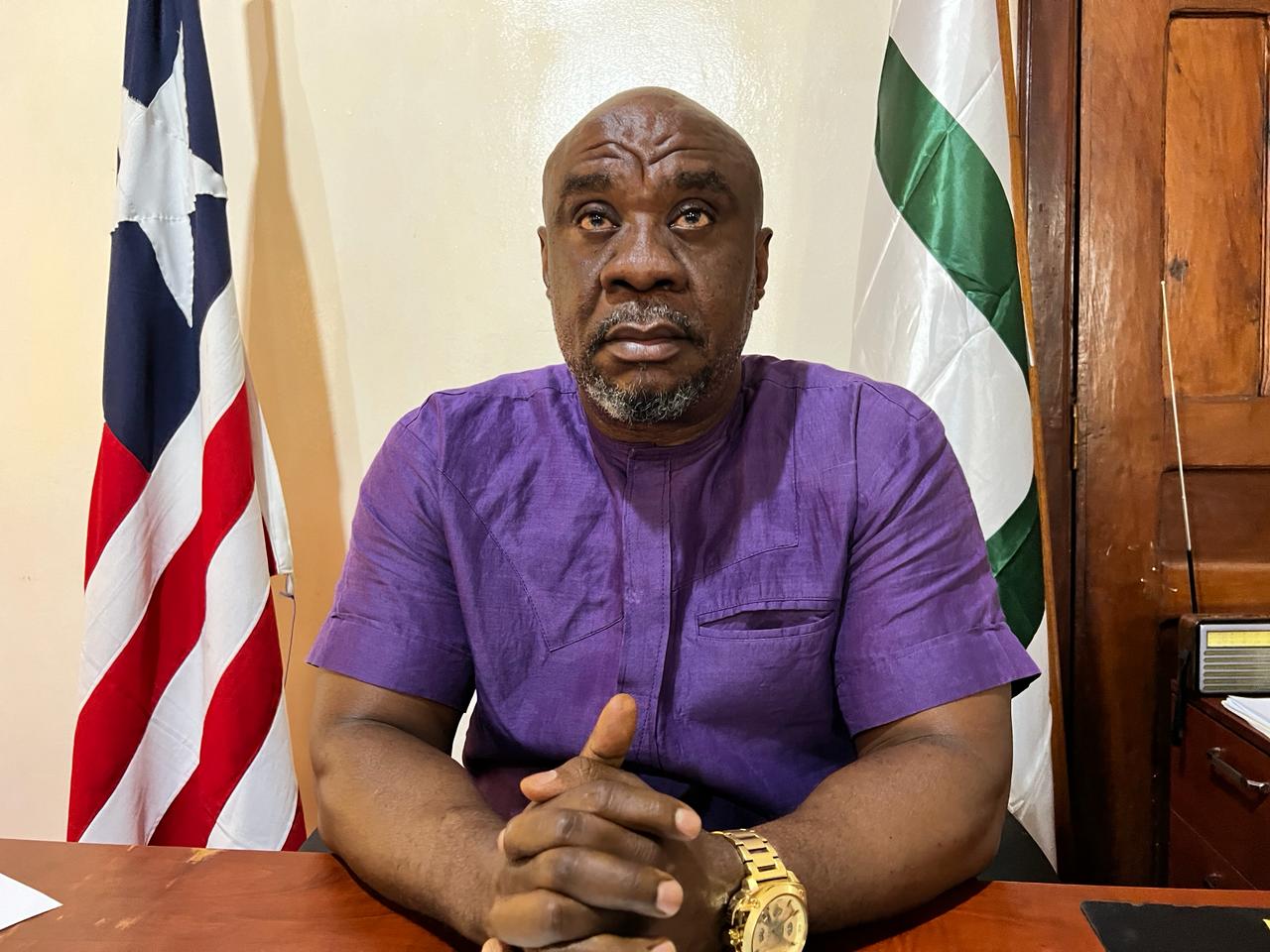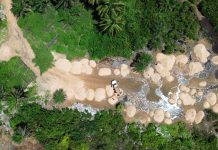Top: Sinoe County’s Superintendent Peter Wleh Nyensuah supports the illegal operations of Liberia Natural Produce Incorporated (LNPI) without the Liberian government’s approval. The DayLight/James Harding Giahyue
By Varney Kamara
GREENVILLE – Sinoe County’s Superintendent Peter Wleh Nyensuah is backing an oil palm company’s illegitimate operations against a local community demanding its rights and holding the firm accountable.
In 2022, Liberia Natural Produce Incorporated (LNPI) purchased a palm plantation in the Tarsue Chiefdom of Sanquin District from Equatorial Palm Oil (EPO). However, LNPI operates the plantation without the Liberian government’s approval, sparking a protest.
In a letter last month, seen by The DayLight, Nyensuah urged Tarsue to sign an MoU LNPI proposes, dismissing the community’s concerns over rights abuses and the LNPI’s illegitimacy.
“It is my strongest anticipation that you will work with the investors in our communities,” wrote Nyensuah. He even suggested he was open to playing a role in negotiating the MoU or drafting a new one.
Nyensuah had launched an investigation after tension brewed in the area following the community’s complaint.
He based his decision partly on a previous MoU that locals had signed with LNPI. “The Tarsue community having received benefits under the now expired MoU from LNPI, the community lacks the standing to question the legitimacy of the LNPI,” Nyensuah added.
But his reason for his decision is faulty. The document he referenced only gave LNPI an exclusive right to purchase oil from local producers, not to operate the plantation. A DayLight investigation established that LNPI likely used the document to gain control of the plantation during last year’s heated presidential elections.
In his finding, Nyensuah claimed that the government and LNPI amended the 2008 EPO concession agreement in March. However, there is no public record to support that claim.

The government and LNPI have said the company’s operations have not been authorized. The Ministries of Agriculture and Justice, responsible for authorizing oil palm concessions, said it was unaware of LNPI’s operations. LNPI itself admitted that in a June interview with this newspaper, a fact it included in the draft MoU to Tarsue.
‘Bogus MoU’
Nyensuah’s unlawful decision has inflamed the situation in Tarsue and may have soured his relationship with the community.
“We are rejecting the MoU because it is a bogus agreement. We want to see LNPI’s Concession Agreement with the government,” said Ericson Pyne, a youth leader. We want to see their letter of authorization.
“I think Superintendent Nyensuah is not capable of leading this county because, as a leader of the county, before coming up with such a proposal, you must have properly read and understood previous agreements. We totally disagree with his suggestion,” added Pyne.
Pyne’s comments reflect the views of the people of Tarsue who have endured threats and intimidations at the hands of LNPI, with armed police forcing people out of the plantation.
The DayLight investigation revealed that LNPI violates the Land Rights Act and the principles of the Roundtable on Sustainable Palm Oil (RSPO), which writes rules for the oil palm industry worldwide.
The law and the RSPO rules recognize ancestral landownership and communities’ right to consent to projects intended for traditional territories.
Nyensuah did not respond to The DayLight’s queries for comments on the matter.





Facebook Comments